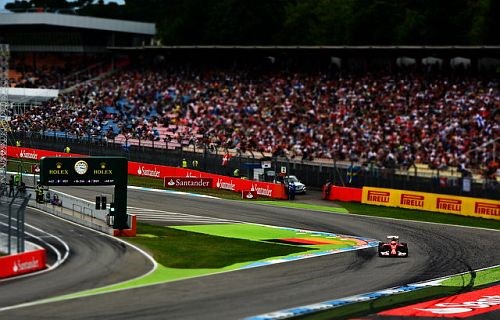Formula 1 does not seem to have a positive impact on host regions

Hockenheimring. Photo: Justin LaBerge / Flickr
There is a consensus among sports economists that hosting major sports events seldom materialise as economic growth. Positive effects are rare, and effects can even be negative as the costs associated with hosting can prevent more efficient use of public funds.
The Olympics and World Cup impose substantial costs on host nations, and it is often the case that expensive stadiums built for the sole purpose of hosting the event turn into white elephants. Infrastructural costs of hosting a Formula 1 Grand Prix (F1 GP) are smaller in comparison and race circuits can often be reused. Therefore, it is more likely that the effects could be positive.
No positive effects of hosting
A new study by researchers from the Danish Institute for Sports Studies and NTNU Business School in Trondheim, Norway, includes objective data from ten European regions that have hosted F1 GP between 1991-2017 (but not every year).
The study compares the years of hosting an F1 GP with non-hosting years (within the same regions) to examine its potential effect on GDP, employment and tourism.
Using panel data regression techniques on objective data, the study fails to support the claim that hosting an F1 GP yields positive effects on any of the deployed measures. On the contrary, the study points toward lagged negative effects materialising three to four years after an F1 GP has been held.
The authors offer different explanations for the negative effects. First, it is likely that public funds used to cover hosting fees, preparation of the race circuit and infrastructure could be used more efficiently on other projects.
Further, tourist spending associated with the F1 GP may come at a cost if non-GP tourist are negatively influenced by the F1 brand – e.g. in relation to environmental issues – and instead choose to visit other destinations. Also, locals who choose to leave during the F1 weekend will spend less money in the region at that time.
Although speculative, one reason why the (negative) effects do not occur until three to four years after the GP could be that the spending cuts undertaken to finance F1 are gradually implemented or that other structural arrangements in the public sector slow down the pace of the negative effects.
Stop using 'hard effects' as arguments for hosting
The authors argue that politicians, public authorities and other stakeholders advocating for using public money to host F1 GPs should stop claiming that it is a sound investment. Moreover, they argue that there could be other arguments of hosting – e.g. if hosting increases utility among locals – but that these effects should be proven to exist before putting them forward as argumentation.





